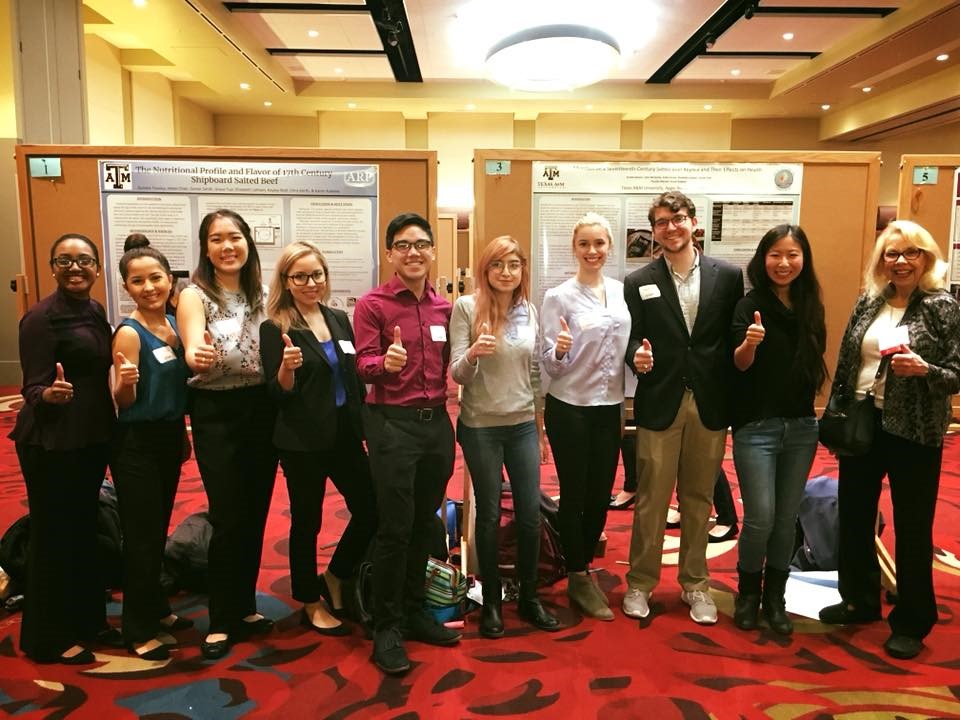By Daniela Trevino
Student Research Week (SRW) is a four-day competition that allows students to showcase research conducted at Texas A&M University. This year, the members of the Ship Biscuit & Salted Beef Research Project submitted three different posters and we KILLED it, if I do say so myself.
SRW French Bay Salt Poster Christian Encarnacion and Mariana Trevino: “Microbes in French Bay Salt Used in Replicated 17th-Century Food.”
SRW GCMS Poster Daniela Trevino, Helen Chen, and Somer Smith: “The Nutritional Profile and Flavor of 17th Century Shipboard Salted Beef.”
SRW Salted Beef Poster Emelie Nelson, John McQuitty, and Erika Davila: “Microbes on a Seventeenth-Century Salted Beef Replica and Their Effects on Health.”
The way our posters were set up worked out quite nicely. First, people would encounter the poster about the French Bay Salt and learn about the microbes that grew on it. This salt was relevant to the project because it is what we used to salt and brine the beef and pork. After learning about this, people would ask, “So how did this affect the beef?” This would redirect them over to the poster about the nutritional profile and flavor of the salted beef. Here, they learned about how the gas-chromatography mass-spectrometry (GC/MS) technique was used to indicate what the beef would have tasted like. Just as one would have expected…the beef was rancid and pungent. After hearing about the flavor profile of the beef, the people would ask, “Wow, if the beef tasted that bad, I wonder what kind of bacteria was growing on that. Did you guy do any research on that?” This would bring them to our final poster, which described all of the different microbes that were found on the salted beef and their effects on our health.
Although our posters did not win SRW awards as it is incredibly competitive, the judges that stopped by loved our research and thought we did an excellent job presenting them. YAY US! They also asked our entire team to gather for a photo, which they ended up using on their website.


